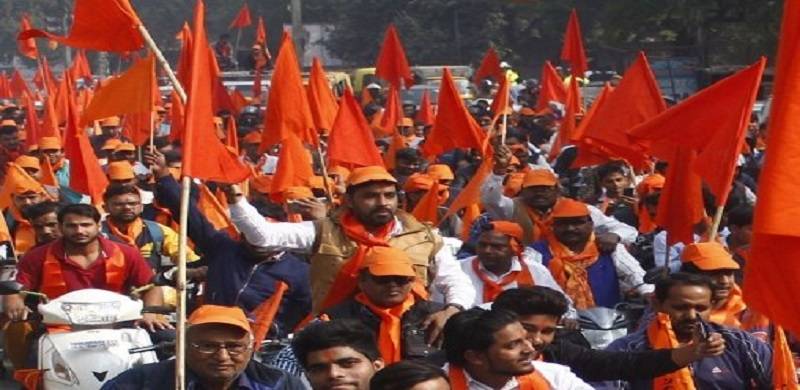
Two opposite forces are presently at work in India, one dividing or polarising the people on religious (or caste) lines, and the other uniting the people. A concrete example of the first can be seen from the recent election results of the Greater Hyderabad Municipal Corporation. Out of the 150 seats there, in 2016 the election results were: Telangana Rashtra Samithi (TRS) 99, AiMIM 44, BJP 4, and Congress 2.
In 2020 the results are: TRS 55, BJP 48, AIMIM 44, and Congress 2. Since the seats of AIMIM, which represents most Muslims, has remained the same, and the seats won by the BJP have increased 12 times, this result indicates a huge swing of the Hindu voters away from the TRS and towards the pro Hindu BJP.
Another example can be seen in West Bengal. In the 2016 state assembly elections, out of the 294 seats Mamata Banerji's Trinamool Congress (TMC) won 211, while the BJP got only 3. However, in the 2019 Lok Sabha (Parliamentary) elections, out of the 42 Lok Sabha seats from West Bengal TMC got 22 while the BJP got 18. This indicates a paradigm shift of a large section of the Hindu voters in the state from the professedly secular TMC to the pro-Hindu BJP.
A similar swing towards the BJP was witnessed in the 2014 Lok Sabha elections in which BJP won 282 of the 543 seats, followed by the 2019 elections, in which the BJP seats increased to 303. This is a remarkable upsurge, considering the fact that in the 1984 Lok Sabha elections the BJP won only 2 seats. In several states too, like UP, MP, Bihar, Haryana etc the BJP came to power.
How does one explain this? To understand, one must first realise that India is still an underdeveloped country in which feudal forces like casteism and communalism are powerful. Secularism is a feature of industrial society, but India is still semi feudal. Though the Indian Constitution proclaims India to be a secular country, the ground reality is very different. The truth is that most Hindus are communal at heart, and so are most Muslims. When professedly secular parties like the Congress were in power communalism, though present, was to some extent kept in check, not because these parties had any real sympathy for Muslims, but because they had an eye on the Muslim vote bank. So till then communalism, though existing, was largely latent, erupting only sporadically in communal riots etc. After 2014 when the BJP came into power in the Centre communalism has become open, virulent and continuous, and Indian society has been largely polarised on religious lines.
Since Hindus constitute almost 80% of India's population (Muslims constituting only 15-16%), the pro Hindu BJP has benefited from this polarisation, and is likely to win in future elections in most Hindu majority states. This is clearly dividing the Indian people on religious lines.
However, there is also a force in India which is uniting the people, and a concrete example of this can be seen in the ongoing farmers agitation in which farmers are agitating cutting through religious and caste lines.
This uniting force is due to the people's socio-economic distress due to massive poverty, record and rising unemployment, appalling level of child malnourishment (every second child in India is malnourished, as revealed by Global Hunger Index), almost total lack of proper healthcare and good education for the masses, skyrocketing price rise in foodstuffs, fuel etc, farmers distress (due to which over 300,000 have committed suicide), widespread corruption, etc.
This people's distress is common to all irrespective of religion and caste, and hence it is a uniting force, as manifested in the ongoing farmers agitation in India. It is submitted that though in the short run the dividing forces in India (i.e. caste and religion) may prevail, in the long run the uniting force will overcome the dividing forces. This is because sooner or later the people will realise that the massive problems in India of poverty, unemployment, price rise etc are common to all.
Building a Ram mandir in Ayodhya or cow protection, love jihad etc are only gimmicks, and will surely not solve the problems of unemployment, price rise, lack of healthcare etc.
It is only by uniting the people and by a massive united people's struggle that the great historical transformation of India from an underdeveloped to a highly industrialised modern country can take place which will give the Indian people a high standard of living and decent lives. This is sure to occur, but it will take time.
